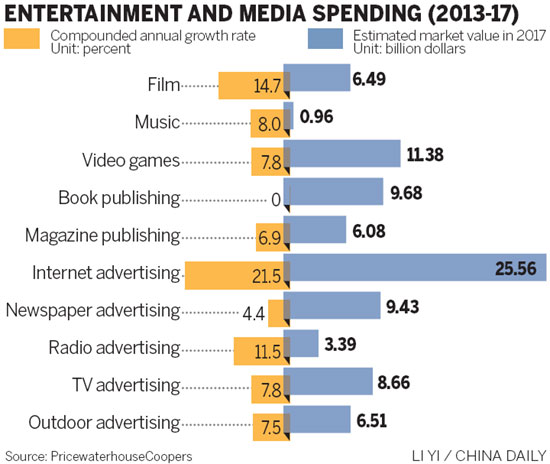It seemed like a big year for Chinese pop music’s international performance. In the American Music Awards (AMAs) 2014, two international awards went to Chinese recipients. China’s talent show-grown pop singer Zhang Jie was presented with the International Artist Award; while the Chopstick Brothers, an immensely popular Chinese boy group, snatched the Best International Song award with their song “Little Apple”.
The outrage and laughter on Chinese social media began when the audience found out that the performance was only taped during a commercial break and then released online on Chinese video-sharing websites. The local audience in the States never got the chance to see the Chopstick Brothers Xiao Yang and Wang Taili danced and lip-synched on the state of AMAs. It was also found out later that these two categories of International Artist and Best International Song did not exist in past editions of the AMAs.
Speculations started both in China and on some of the U.S. entertainment news media. China’s state-run CCTV called it a “Mixed reactions to Chopsticks Brothers performance and win at AMA”. The Rolling Stone questioned: “Do the American Music Awards have a deal in China that requires goosing the broadcast with the Chinese-related content?” Rumour circulated on China’s Sina Weibo, saying the Chinese artists paid 6 million RMB (roughly equals to 0.95 million U.S. dollars) to let AMA to establish these two awards for the Chinese artists exclusively.
The speculations and rumours accumulated. Mark Rafalowski, AMA’s organiser Dick Clark Productions’ vice president of the International Division, later cleared out the rumours in an interview with Xinhua News Agency. “The AMAs have a decent history of 40 years, do you think that is what we will do? It doesn’t fit our tastes and status,” said Rafalowski.
Nevertheless, Rafalowski admitted these two exclusive awards were for certain marketing consideration: “We are glad to promote the brand of Dick Clark Productions internationally and feel proud to bring outstanding international singers like Zhang to the stage.”
The AMA Chinese content remind people of what happened earlier this year when Chinese actress Jing Tian won the Hollywood International Award from the Hollywood Film Awards. Jing was the “first-ever recipient of the Hollywood International Award”, according to Hollywood Reporter.

Just like decades ago when the Chinese magazine People’s Movie has introduced the Oscars to the Chinese readers, the prominent awards in the industry, such as the Academy Awards, the Golden Globe Awards and the Grammy Awards still play big roles among Chinese audience. The major difference nowadays, however, would be the audience’s judgmental capability to tell the credibility of the awards that been presented to the Chinese singers and celebrities.
According to a social media poll on Sina Weibo about the AMA 2014 scandal, 64 percents of the Chinese social media users claimed that they would like to see real recognition, not just the gesture to show the interest to the Chinese market.
China has a huge entertainment content market with great potential. Last but not at least, many of the Chinese media hold strong investment capability and purchasing power.
So, despite the efforts that singers like the Chopsticks Brothers and Zhang Jie have put, China’s music industry is still looking for its first truly global hit. And it might be hard for any of the global awards to win the Chinese market just by adding one-time, exclusive items for the Chinese.

Leave a Reply
You must be logged in to post a comment.